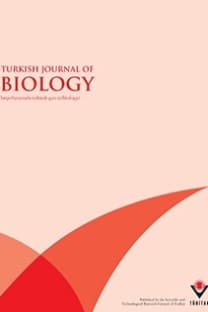Short-term diabetes decreases ischemia reperfusion-induced arrhythmia: the effect of alpha-2 blocker yohimbine and glibenclamide
Ischemia, reperfusion, arrhythmia, diabetes, glibenclamide, yohimbine,
- ISSN: 1300-0152
- Yayın Aralığı: Yılda 6 Sayı
- Yayıncı: TÜBİTAK
Thuy Ninh NGUYEN, Thi Luong TRAN, Duc Thanh NGUYEN
İvana HOLKOVÁ, Frantisek BILKA, Drahomíra RAUOVÁ, Lydia BEZÁKOVÁ
Hanife GENÇ, Marc F. SCHETELIG, Xavier NIRMALA, Alfred M. HANDLER
Jayabalan SHILPHA, Manoharan JAYASHRE, Muthiah Joe Virgin LARGIA, Manikandan RAMESH
Kauther HADJ AYED TKA, Asma MAHFOUDH BOUSSAID, Kaouther KESSABI, Imed MESSAOUDI, Sonia GHOUL MAZHAR, Joan ROSELLO CATAFAU, Hassen BEN ADENNEBI, Rym KAMMOUN
HÜSEYİN TOMBULOĞLU, ABDUGAFFOR ABLAZOV, ERTUĞRUL FİLİZ
Ahmet ONAY, ENGİN TİLKAT, VEYSEL SÜZERER, ÖZGE KARAKAŞ METİN, YELDA ÖZDEN ÇİFTÇİ, FATİH MEHMET KILINÇ, İBRAHİM KOÇ, MUHAMMET ŞAKİROĞLU, HAKAN YILDIRIM, AHU ALTINKUT UNCUOĞLU, NAZAN ÇALAR, ÖMER FARUK AKDEMİR
Prajitha VAZHANGAT, John Ernest THOPPIL
MUSTAFA CENGİZ, ADNAN AYHANCİ, HATİCE MEHTAP KUTLU, AHMET MUSMUL
Tayyab HUSNAIN, Bushra RASHID, Muhammad Neveed SHAHID, Baheldeen MOHAMED, Javed Iqbal WATTOO, Muhammad Sarfraz KIANI, Adil JAMAL, Beenish AFTAB
